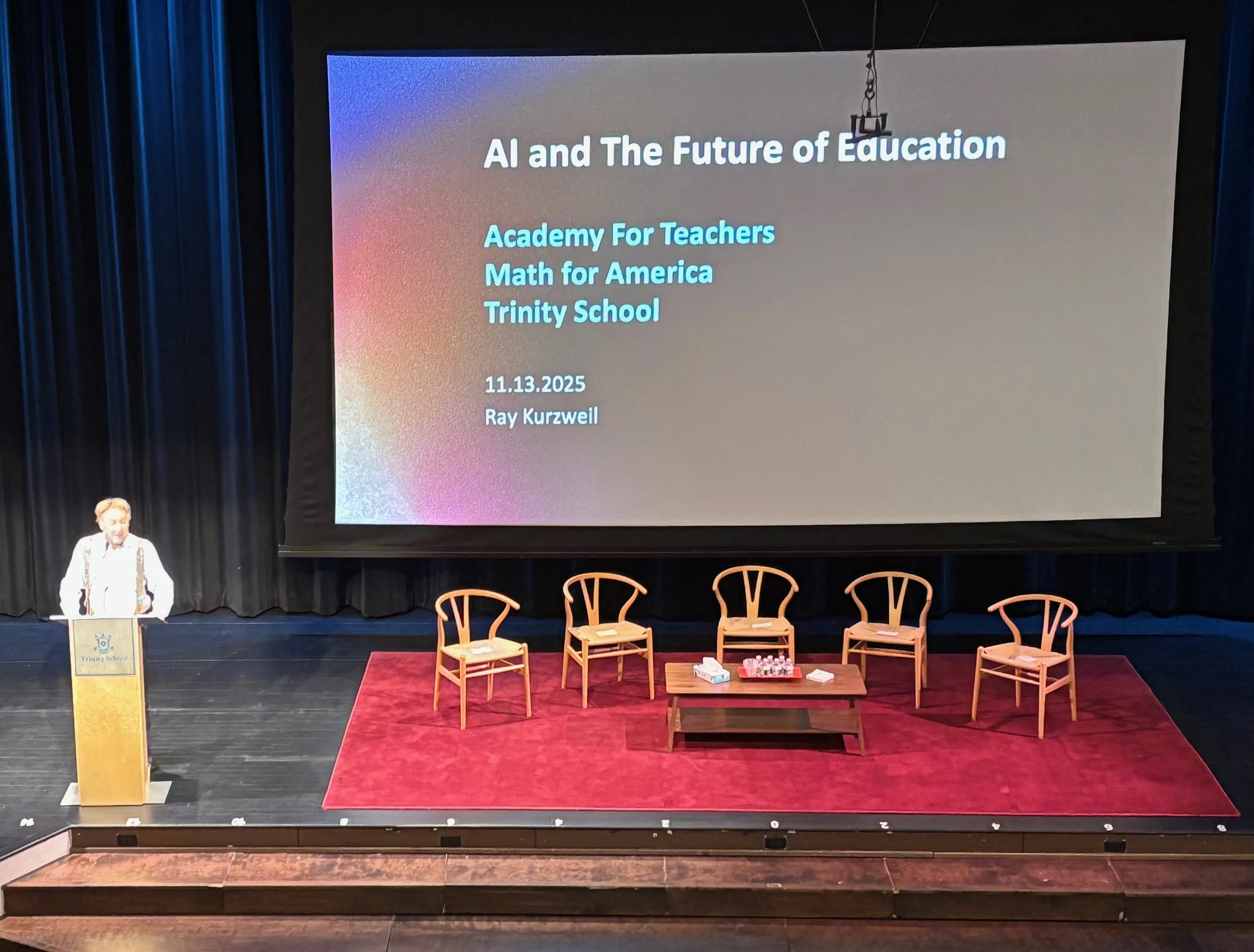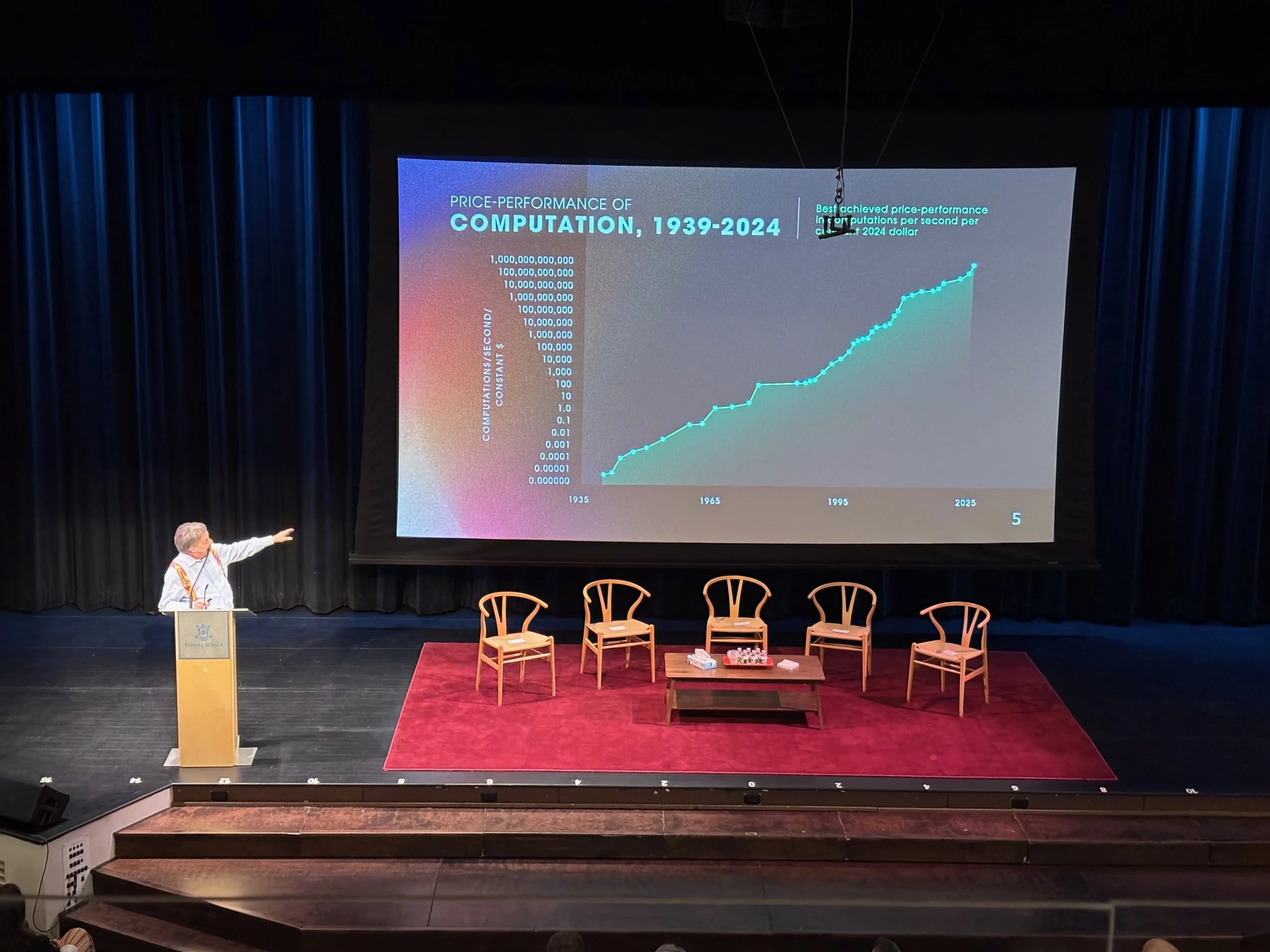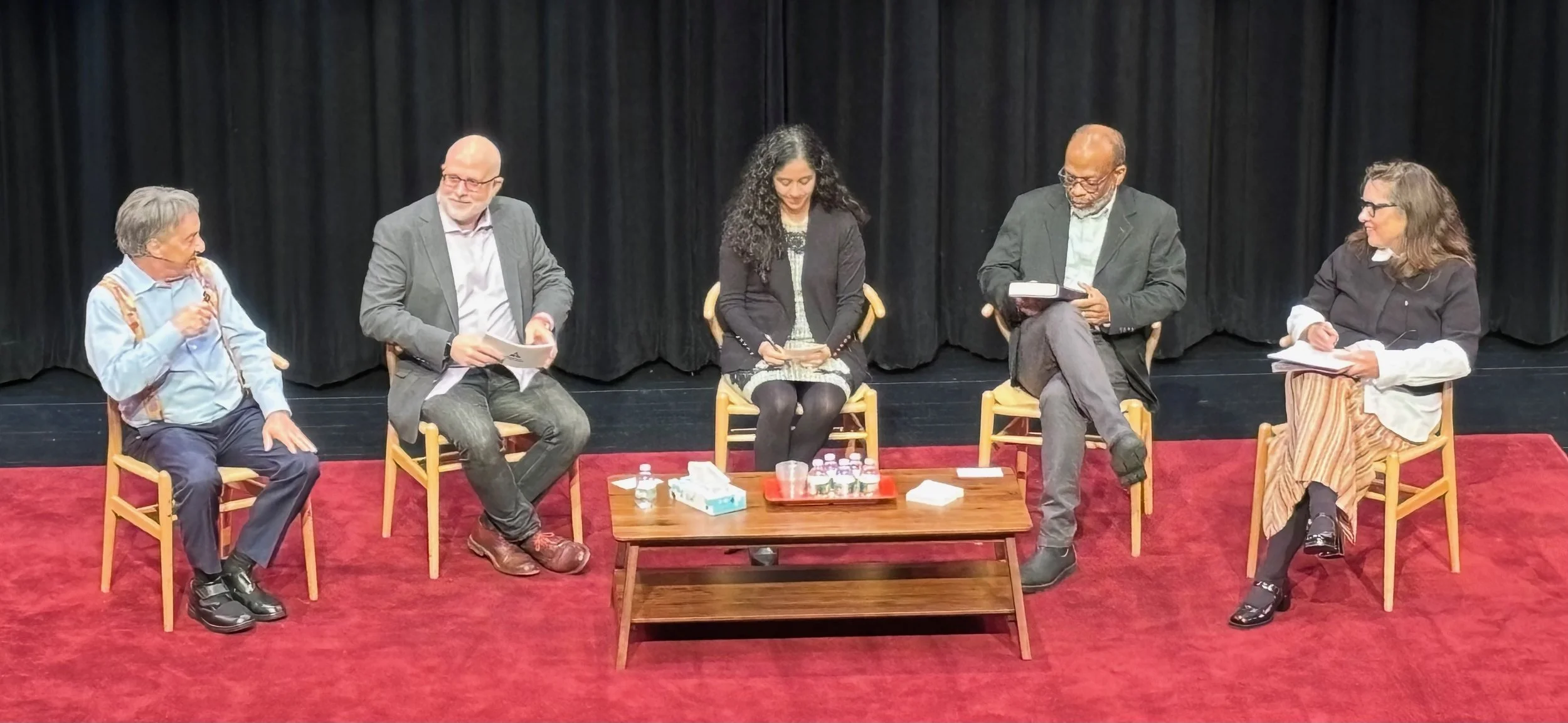Ray Kurzweil: AI and the Future of Education
My brother Mark is the AV and Theater Operations Manager at the Trinity School in New York City. As part of his job duties, he helps produce a series of lectures by various luminaries. He recently invited me to one such lecture, given by Ray Kurzweil on AI and The Future of Education. For those of you who don’t know, Ray is a true Renaissance man - inventor of numerous technology devices that we use every day including OCR and text-to-speech, and founder of Kurzweil Music Systems (one of my favorite synthesizer brands). He is also one of the preeminent minds in the world of artificial intelligence. His book The Singularity is Near (2005) is perhaps one of the most important books on the topic of AGI (artificial general intelligence) and is often quoted whenever we talk or think about the future of AI. I was hoping that the lecture that I attended last night would answer a lot of questions about how educators should approach the use of AI in their classrooms and perhaps a look at what is coming. Instead, I left feeling more uneasy than ever and ultimately scared about the singularity and hoping it never happens for a variety of reasons.
Kurzweil uses the term “the Singularity” to describe a future moment when technological growth - especially in artificial intelligence - accelerates so rapidly that it fundamentally transforms human life. In his view, AI will reach and then surpass human intelligence, leading to a merger of biological and digital systems. This convergence will enable humans to enhance their cognitive abilities, extend lifespan, and interact with technology in ways that blur the boundaries between person and machine. For Kurzweil, the Singularity is not an apocalypse, but a profound evolutionary step where humanity amplifies its potential through exponentially advancing technologies. What does this mean for you and me? Kurzweil predicts that by 2029, humans will be implanting AI-enabled nano robots into their brains providing them with all of the knowledge of everything - basically our actual brains will merge with our phones. When we want to know something, we’ll just have to ask and the nano robot will provide the answer for us - without us even realizing. Scary stuff.
The sequel to his book, The Singularity is Nearer, explores how far we’ve come since his earlier work, detailing rapid advances in AI, biotech, robotics and nanotechnology. He frames the transformation not as a dystopian takeover, but as an opportunity to amplify human consciousness, expand intelligence and fundamentally redefine what it means to be human -drawing a metaphor of a person deaf hearing a symphony for the first time. Yet for educators, technologists and musicians alike, the message resonates deeply: we are in a moment of unprecedented convergence. The boundaries between creator and instrument, teacher and student, performer and platform are shifting. Kurzweil’s vision challenges us to consider how we might not only adapt to this future—but actively shape it. Whether you greet this horizon with excitement or trepidation, you’ll find in this book a richly detailed map of the terrain ahead.
For most of the talk last night, the audience was blown away by the predictions that Kurzweil laid out about AI in the fields of medicine and education. The idea of AI being used to process mountains of data in a few hours to find answers to some of the world’s most difficult problems was a very optimistic perspective on the future. After his talk, he was joined by a panel of educators from the Academy for Teachers and Math for America, and that’s where things took a big turn - at least for me.
The educators on the panel asked very specific questions about how teachers should deal with the use of tools like ChatGPT and Claude by both teachers students in the classroom. Questions about the impact on student learning, understanding, creativity, and empathy were asked - to the delight of every member of the audience - myself included. What does Kurzweil think about all of this? He really didn’t have an answer. He said that they were tough questions. The only thing that he did say on the subject that resonated with me was that our job as educators is to prepare students for the world that they will live in - and at the moment - no one knows what that world will look like because of AI. Generative AI and AGI will be their collective future and by avoiding the use of AI and discussions about it is doing them a disservice. I completely agree. But the more specific the questions got, the more general his answers became.
The most important question of the evening, without question, was asked by Sarah Tazghini, an algebra teacher in Queens. Her question focused on access to the coming Singularity event - what are the issues around marginalized populations who may not be able to get these AI-enabled robots implanted in their brains - aren’t we looking at a further broadening of the many fundamental inequalities in our society - now from both a wealth inequality AND an information access inequality. As soon as she asked the question, a relatively loud murmur from the crowd erupted - waiting for his answer. His response? He said that most people could afford a phone, so he doesn’t think that their will be any real problems when the rollout of the singularity happens. That’s when everyone in the crowd dropped their jaw - as did I. Right then we realized that the singularity that Kurzweil is certain will happen will further drive a wedge between the haves and the have nots. And there is so much more.
Immediately following the end of the talk, I turned to the person next to me and said “I think I’m horrified.” She was too. It became crystal clear that when this technology becomes available - it will be a for-profit business. Those with the most money will get the implants first and have a HUGE advantage - access to the world’s collective knowledge at their disposal. That “power” will most likely be used to enrich themselves as quickly as possible before the masses get access as well. But will they? Will there be differences in these AI nano bots - advanced, medium, and basic? Does anyone really think that the singularity will be rolled out equally - truly leveling the playing field for everyone? I highly doubt it. ALL of the buzz among the educators in the audience revolved around this very topic.
Tazghini’s question was the most important of the evening and it only inspired many more questions, and frankly I’m not sure that I ever want an AI nano bot implanted in my brain. I don’t want to know everything - but maybe I’m old school. But the students in our classrooms? That is a much tougher decision. If this actually happens, they’ll be almost forced to get this done. It’s like the folks who still don’t have a smartphone. It’s almost a requirement in the world we live in. Our children and their children are going to live in a much different world.
In the end, I left the auditorium feeling a mix of awe, discomfort, and responsibility. Kurzweil may be convinced that the Singularity is inevitable and beneficial, but the educators in that room understood something far more immediate: our students will inherit the consequences long before the rest of society has even agreed on the questions. If AI-enabled enhancements become the new baseline for participation in modern life, then equity cannot be an afterthought—it must be the starting point. As teachers, we don’t have the luxury of waiting for perfect answers. We have to prepare students for a world that is arriving faster than any of us imagined, while also fighting to ensure that the future they step into is one where access, humanity, and agency aren’t reserved for the privileged few.
What do you think?


